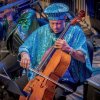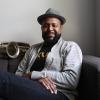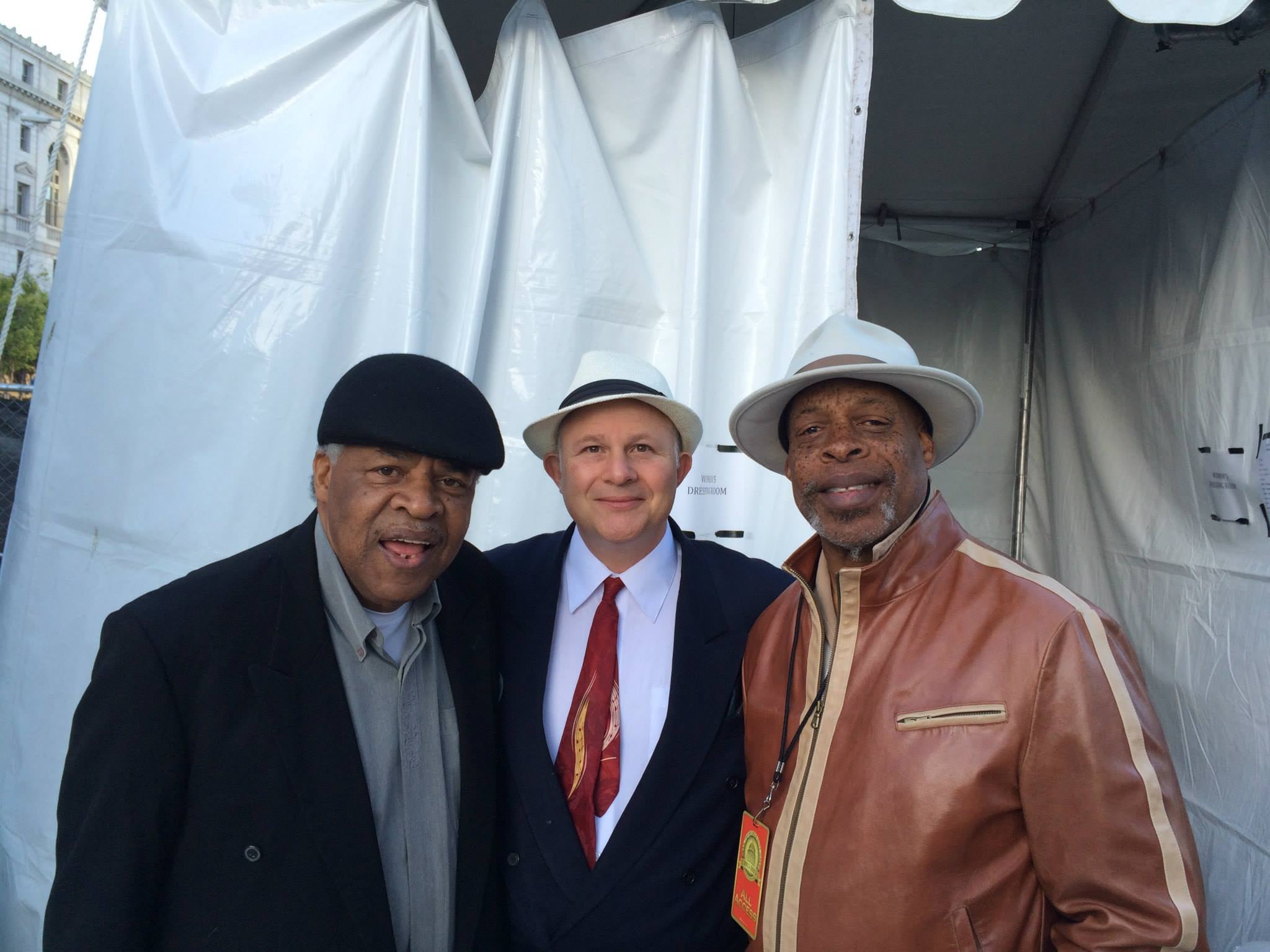
Chat with Chris Siebert when he’s on break from weekly rotations at the Royal Cuckoo Organ Lounge, or at monthly gigs with Lavay Smith & Her Red Hot Skillet Lickers at Keys Jazz Bistro and Biscuits & Blues. You’ll quickly realize that this 61-year-old organist and pianist lives and adores the spirit and creed of jazz as much as he loves performing it. And you’ll be charmed by how much he loves the Bay Area and the people he makes music with and for.
Siebert grew up in the New York City area and in Los Angeles, the son of an actor dad with an affinity for Broadway musicals and a mom who cherished classical music. Both were avid record collectors, as their children would be.
“It was the soul of those old records that drew us in,” Siebert said. He started making music at age 16, when his father bought a piano for the family. But the music was placed on hold when young Chris went on to pursue a dual degree in history and political economy at UC Berkeley, spend a year in France, and intern with Congressman Ron Dellums.
While waiting tables and bartending to pay rent in San Francisco, he followed his parents’ practice and began purchasing blues and jazz records with his tip money.
Inspired to perform some of what he was listening to, he purchased a melodica and began seeking out a practice piano at Hastings College of the Law. A musician acquaintance invited Siebert to sit in at the bluesy Blue Lamp bar in the Tenderloin.
This invitation evolved into regular gigs, “where the pay was not great, but I was having fun, getting all the free beer I wanted,” he said.
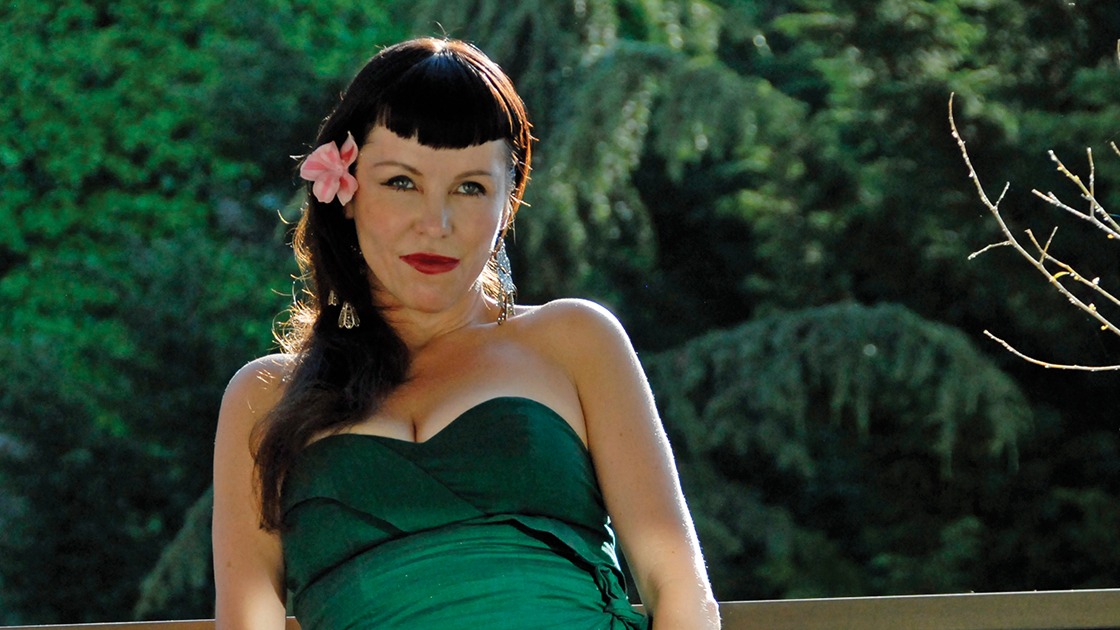
In July 1989, the guitarist in Siebert’s group, Craig Ventresco, introduced him to the buxom, ebullient singer Lavay Smith. Siebert was charmed by her stage presence, and within a few weeks the two had begun dating. Smith’s group, which included trumpeter Oscar Myers, drummer Pete Devine, bassist Bill McBeath, Ventresco, and Siebert, was christened the Red Hot Skillet Lickers, because of “Lavay’s appetite for memorable double entendres,” according to Siebert.
“She and I had the same tastes and ideas,” he said. “But I introduced her to a bunch of stuff, and she introduced me to a bunch of stuff.”
Siebert and Smith have stayed together —romantically and musically — for over 35 years, though they remain unmarried.
Word about “young kids playing old music” at the Blue Lamp spread to North Beach in the early ‘90s, and the group booked increasingly prestigious gigs. After landing a weekly organ spot at Bruno’s, Siebert took lessons on the instrument from Dave Mathews, keyboardist with Etta James and Carlos Santana.
Whatever the venue, “people liked our sound because we were very different from what anybody else did,” Siebert recalled. “We discovered that in the Bay Area there was a massive wealth of veteran musicians who had played with all the people whose records we were buying and listening to.”
So Siebert and Smith started recruiting them. They included clarinetist Vince Cattolica, trumpeter Allen Smith, and saxophonists Bill Stewart and Hal Stein, all born in the 1920s.
“This was the first generation who grew up in the Swing Era” and launched their careers under the influence of Bop, says Siebert. Aside from their historical credentials, “I was trying to find people who could tell the best stories within the context of the music we play, because I realized that this music could now speak to younger people, and even to non-jazz audiences. People just went crazy for them.”
As Lavay Smith & Her Red Hot Skillet Lickers secured longer-term San Francisco engagements, the evolving and rotating roster took on somewhat younger players, including drummer Sly Randolph, who recently passed away. Siebert continued as keyboardist and bandleader, and his sibling, Charlie, joined the group on guitar in 1992.
“We were doing this before the neo-swing scene popped up in the mid-nineties,” Siebert pointed out. “And we were the only band to become nationally known, using veteran musicians.”
Siebert highlighted the “under-sung” enhancement provided by his groups’ principal arrangers, Ellington specialist David Berger and Grammy Award-winner Mike Rinta.
By the end of the decade, the group had engaged Jim Cassell of the Berkeley Agency, who had them touring nationwide and abroad, as well as performing in major Bay Area venues like Zellerbach Hall and the War Memorial Opera House (for the annual Gala) and at Monterey and other jazz festivals. They recorded on their own Fat Note Records label and earned four and a half stars in Downbeat magazine, as well as an extended stay on the Billboard jazz charts, for their Everybody’s Talkin’ ‘Bout Miss Thing! album in 2000. The discs drew positive commentary from the musically inclined actor/ comedian Dan Ackroyd and Bill Clinton.
But Siebert said his “biggest point of pride” was playing with older San Francisco players for audiences nationwide: “These players could tell that we were genuine in our like of what they did,” he said. “And their families thanked us.”
Siebert maintained a liberal approach to management in line with his progressive politics. Instead of holding a strict rule about gig attendance, he allowed players in the band to drop out on the day of a gig, if a substitute could be found, a task made easy by Siebert’s reputation. He made himself familiar as a participant in memorial services, community fundraisers, and political demonstrations.
The new millennium brought a batch of recruits in their 20s to the Skillet Lickers and Siebert’s other ensembles. They first brought in Howard Wiley, Darrell Green, and Mike Olmos — saxophonist, drummer, and trumpeter, respectively — as subs. Siebert accepts comparisons of his locally sourced roster to the jazz incubators of the past: ensembles led by the likes of Art Blakey and Miles Davis. “The older guys love the younger guys,” he said. “When Bill Stewart made his debut album, produced by Marty Wehner [a trombonist with the Skillet Lickers], Bill put both Howard and Mike on it.”
The cross-generational affection has been mutual. “I’m watching and learning from the OGs [original gangsters], sitting there just getting my butt kicked by Bill Stewart and Jules Broussard,” testified the now 46-year-old Wiley, a recent SFJAZZ resident artistic director. Wiley has also been featured twice a month alongside Siebert at the Royal Cuckoo Organ Lounge.
“I don’t get to play a lot of jazz,” he said. “But when I’m at the Cuckoo, we are playing jazz! . . . This stuff is completely unadulterated. It’s the stuff that really made the music popular, and the reason people are still listening to this.”
The Cuckoo has been a family affair. “I always say I hit the jackpot with in-laws,” Siebert avers. “And they’d grown up singing as a family.” After bartending at Chez Spencer and Bruno’s, Lavay Smith’s younger brother Paul Miller sought a venue to buy with his wife, Debbie Horn. In 2010, he purchased the 130-year-old site of Belinda’s, a dive bar he’d frequented on the western side of Bernal Heights, despite its reputation for fights. He retrofitted the place with help from his father, Bud, and renamed it for his grandfather Clarence’s favorite hang in Long Beach. The walls were adorned with collages by Miller’s pal Ray Vogelzang and pictures of horses, and both the front bar and the homey back patio were hung year-round with Christmas lights.
Miller positioned a turntable at the back end of the bar beneath his collection of hundreds of LPs, many older than he is. For live music Siebert installed a Hammond A-100 electric organ just beyond the bar and seasoned his chops with lessons from local luminary Wil Blades.
The Cuckoo began hosting hodgepodge performances of musical friends and family and over the next 15 years, Siebert emerged as the venue’s quasi musical director and accompanying Smith across her catalogue of jazz, R&B, pop, gospel, blues, and Afro-Cuban music. Even when bar talk threatened to swamp his solos, Siebert found satisfaction. “You have to get rid of your ego, and once you do that, you can say, here’s a chance to try new things, to workshop.” During breaks between each evening’s three sets of live music, the bartenders double as DJs, playing vintage LPlp’s over the house system.
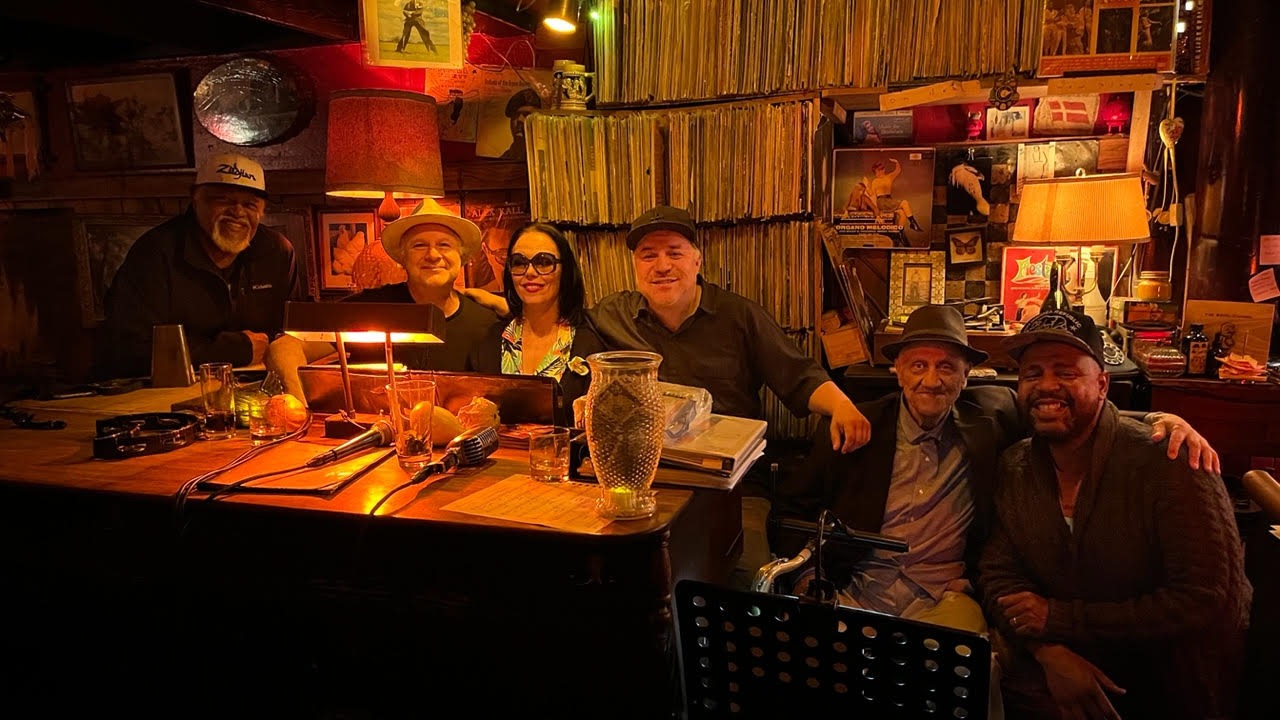
The extended musical family of Skillet Lickers has been instrumental in filling out the weekly music calendar, bringing themselves and their horns for sessions with Siebert. Trombonist Danny Armstrong pairs his barrelhouse baritone voice with Smith’s sassy soprano, and Broussard trades off with Wiley on saxophone Thursdays. “In the same spirit as Lavay, crowds love Jules in part because of how he performs,” says Siebert about the 88-year-old Broussard, who, with fellow Skillet Licker Allen Smith, is memorialized on the Fillmore Street Walk of Fame.
The Cuckoo has become a multigenerational destination for fans and musicians, including classical performers wanting to gather and gab after their gigs. Ascending jazz stars visiting from elsewhere who’ve dropped by for ad hoc performances include Sullivan Fortner, Emmet Cohen, Camille Thurman, and Altin Sencalar. Kat Miller’s daughter, Ella Dair, works and sings in New York but stops in on homecoming trips to vocalize with her aunt Lavay at the Cuckoo and at Keys.
This September is a typically active month for Siebert and Smith, with Skillet Lickers gigs at Biscuits and Blues last week, at Keys this Saturday (where they were the club’s first act to sell out two shows on the same evening), and at Flower Piano in Golden Gate Park next Saturday. The week of Sept. 14 at the Cuckoo, Siebert solos on Tuesday and Wednesday, continues there with Howard Wiley on Thursday, and with Smith and alto saxist Brad Leali on Friday. And on Sunday evening, Smith and Siebert will return to the Cuckoo to usher in another seven days of happy sounds.



